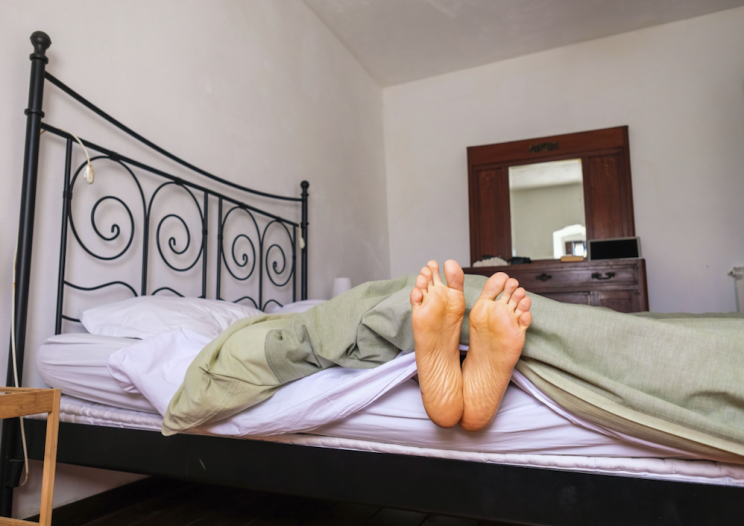How much sleep do I need? Expert advice on the numbers of hours you need to stay healthy

Zzzzzzzz…
If you find yourself nodding off while reading this, chances are you didn’t have enough sleep last night.
Many of us obsess about getting a certain amount of sleep each night, but not everyone is the same.
The figure of eight hours is often cited as a required sleep level, but experts say that each case should be examined on an individual basis.
MORE: Unique mews house up for grabs for £800,000 is just 2.5-feet deep
MORE: Plucky pheasant hitches ride on double-decker bus after smashing through window
Former British prime minister Margaret Thatcher famously got by on just four hours sleep a night – but not everyone is Margaret Thatcher.
However, there are rough guidelines on the number of hours needed to stop you dozing off the next day.
This Friday, March 17 is World Sleep Day, which is organised by the World Sleep Society with the goal of promoting healthy sleep.
Unfortunately, there are almost 100 sleep disorders, and our changing habits make it harder for us to sleep than ever before.
Staring at a bright smartphone screen for hours before trying to sleep is not advisable.
The World Sleep Society says people who sleep through the night without interruption experience lower rates of high blood pressure, diabetes, obesity and other chronic illnesses.
It says most sleep disorders are preventable or treatable, but less than one-third of sufferers seek professional help.
Sleep problems affect 45% of the world’s population, it says.
According to the World Sleep Society, there are three key components of a good night’s sleep:
1. Duration: The length of sleep should be sufficient for the sleeper to be rested and alert the following day.
2. Continuity: Sleep periods should be seamless without fragmentation.
3. Depth: Sleep should be deep enough to be restorative.
We spend up to one-third of our lives sleeping, so it’s important that we get it right.
‘Sleep apnea causes daytime sleepiness and fatigue, and may lead to conditions such as hypertension, ischemic heart disease, stroke 27, and diabetes,’ the World Sleep Society says.
‘Lack of sleep or poor quality sleep is known to have a significant negative impact on our health in the long and short term.

‘Next day effects of poor quality sleep include a negative impact on our attention span, memory recall and learning.’
More than one in three people feel they do not get enough sleep.
HOW MANY HOURS DO WE NEED?
According to the National Sleep Foundation in the US, adults aged 26 to 64 require 7 to 9 hours of sleep a night, although 6 or 10 may also be appropriate.
For young adults aged 18 to 25, the parameters are similar, but they can sleep up to 11 hours.
The recommended range for teenagers is between 8 and 10 hours of sleep.
HOW DO WE GET A GOOD NIGHT’S SLEEP?
The NHS says we should try to sleep at regular times and try to wind down before going to bed.
We should also make our bedrooms more sleep-friendly by removing unnecessary gadgets. Keeping a sleep diary is also advised.

 Yahoo News
Yahoo News 


